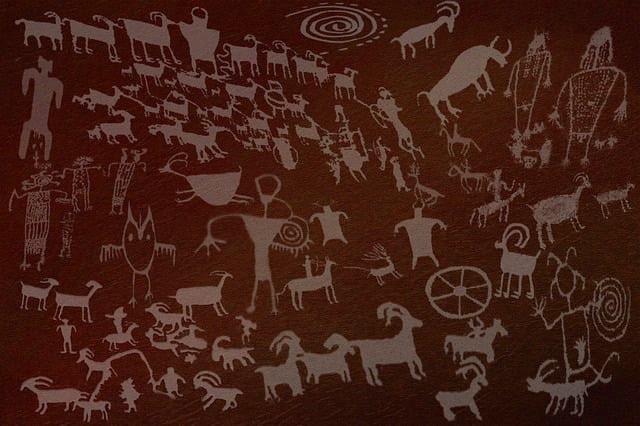Across the vast expanse of human history, our species has demonstrated an extraordinary capacity for adaptation and innovation, shaping and reshaping the world around us. Yet, this remarkable journey has been inextricably intertwined with the environment, a dynamic force that has continuously influenced our cultural evolution. From the earliest hominin migrations to the rise of modern civilizations, the environment has played a pivotal role in shaping our cultural practices, beliefs, and values.
The impact of the environment on human cultural evolution is multifaceted and profound. Physical landscapes, with their unique topography and resource distribution, have guided the development of diverse subsistence strategies, from the nomadic pastoralism of arid regions to the intensive agriculture of fertile river valleys. The availability of natural resources has also influenced the emergence of specialized crafts and technologies, from the mastery of stone tools in prehistoric times to the harnessing of water and wind power in ancient civilizations.
Environmental factors have also profoundly shaped the social and political structures of human societies. The need for cooperation and resource management in harsh environments has fostered the development of complex kinship systems and governance structures. Conversely, abundant environments may have promoted more egalitarian societies, where access to resources was less constrained.
From the earliest hominids venturing out of the African savannas to modern societies navigating the intricacies of urbanization, our environment has been a constant companion, providing both sustenance and challenges. It has shaped our diets, our technologies, our social structures, and even our beliefs.
In the harsh African savannas, our ancestors developed bipedalism and toolmaking, adaptations that allowed them to exploit new ecological niches. The transition from hunter-gatherer to agricultural societies was driven by environmental factors like climate change and resource availability. The fertile river valleys of the Indus, Mesopotamia, and the Nile gave rise to civilizations that cultivated crops, domesticated animals and constructed intricate irrigation systems.
Our environment has also influenced our artistic expressions, from the cave paintings of ancient humans depicting their interactions with animals to modern architecture that harmonizes with natural landscapes. Language, too, bears the imprint of our surroundings, with words and phrases reflecting the flora, fauna, and geographical features of our environment.
Cultural evolution, with its capacity for adaptation and innovation, holds the key to navigating these challenges. By embracing sustainable practices, fostering environmental awareness, and integrating traditional ecological knowledge into modern societies, we can mitigate our impact on the environment and ensure a harmonious coexistence with nature.
Beyond material and societal influences, the environment has also deeply influenced the cultural expressions of humanity. Artistic traditions, storytelling, and spiritual beliefs often draw inspiration from the natural world, reflecting a deep-rooted connection between humans and their surroundings. Landscapes, flora, and fauna have provided rich imagery and symbolism, shaping the narratives and artistic expressions of diverse cultures.
The reciprocal relationship between humans and their environment is not unidirectional. As human societies have evolved, their impact on the environment has also grown. Agricultural practices, urbanization, and industrialization have transformed landscapes, altered ecosystems, and contributed to climate change. These human-induced environmental changes have, in turn, influenced cultural evolution, forcing societies to adapt to new conditions and develop new technologies to mitigate their impact on the environment.
As we navigate the complexities of the 21st century, the environment remains a powerful force shaping human cultural evolution. By embracing our relationship with nature and harnessing our ingenuity, we can foster a more harmonious coexistence, ensuring that our cultural legacy is one of stewardship and sustainable development, preserving the environment for the benefit of all.

